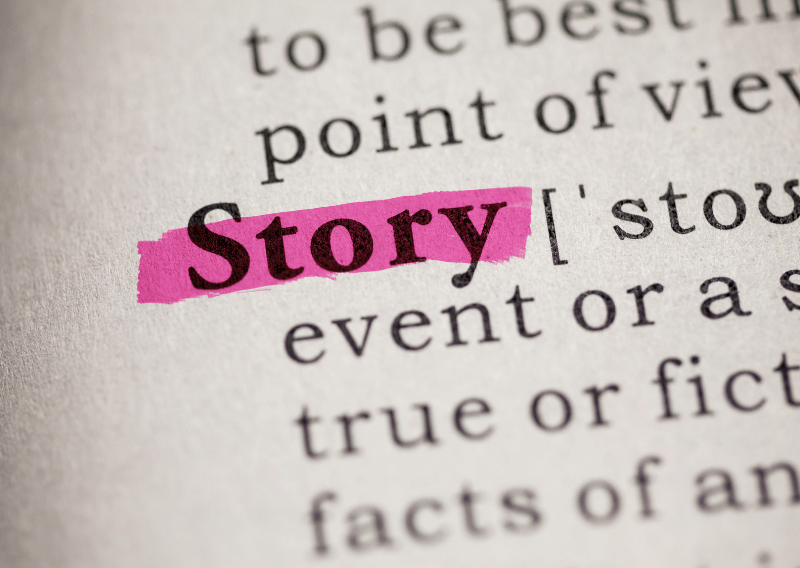Hearing the often overwhelming stories being shared about the inimitable Archie Roach in recent days has caused me to consider the crucial place that “story” plays in all of our lives and organisations.
In Archie Roach’s superb autobiography, “Tell Me Why,” he talks about the work he and inspirational Indigenous elder, Jack Charles undertook with young incarcerated indigenous men and women.
Archie writes …
“We want these young men and women to know that we care about what happens to them, that they can turn their lives around and be the best they can be. We tell them about the importance of story, their (Archie’s bold) story and how through song-writing, painting, dance, or other forms of artistic expression, they can find their way through, towards healing and redemption.” (Source: Tell Me Why – pg 339)
Human beings have been able to mass ‘print’ words into books since 1440, just over 620 years. Yet we know countless millions of stories have been conveyed through the hand-written word, hieroglyphics, rock art and of course orally for many millennia. Stories have been told in song, in music, through dance or other artistic forms.
Stories share insights into love, hatred, joy and sorrow. Stories connect us to bygone eras whilst also shedding light onto what might lay ahead if we dare to dream. Stories connect us as human beings, and when all is said and done, they are what defines the life we have led, are living or hope to live.
In his brilliant essay on “Identity”, Stan Grant, proud Wiradjuri man, internationally acclaimed journalist, ABC commentator and prominent voice for indigenous Australians makes the following point …
“Collective memories are the most evocative of all. They are handed down with the authority of ancestry and how can we doubt our ancestors? Collective memories are so powerful they must be whispered, all the better at night or around a campfire. We lean in closer; we breath these stories in until they become fixed. What happened to our ancestors becomes what happened to us. A collective memory soon becomes a collective nervous system.” (Source: On Identity – Stan Grant. Pg. 59 )
Within the team I work with, Leading Teams, we are currently grappling with the wonderful and exciting prospect of growth and development of our business. People in all sorts of workplaces are discovering that energy is urgently needed into what we at Leading Teams call the ‘dynamic’ space; that is into the culture and behaviours of the people within their respective teams.
Leaders want to improve the performance of their teams, and yet often start with the ‘mechanical’ aspect of their work before focussing on the strength of professional relationships, ensuring we have collectively arrived at an agreed behavioural framework and then nurturing a feedback rich culture that recognises the need for genuine conversations to be normalised.
We, like many organisations are now at a point in time when the rich and vital stories about the creation of Leading Teams need to be told, and crucially, listened to. The sheer doggedness of the likes of Ray McLean and Kraig Grime as they created this business need to be told and heard.
The stories of the outstanding team of people who have joined Leading Teams over the course of the past 25 years need to be told. The stories of our magnificent clients need to be told and heard. Our success and failure stories need to be told and heard. The stories of great joy and sadness within our team need to be told and heard.
We at Leading Teams are not immune to the need to consider how we grow our business whilst, recognising our rich story and paving the way for an even better future. We too must hear the ‘evocative memories’ of our business and in doing so, ‘what happened to our ancestors becomes what happened to us. A collective memory soon becomes a collective nervous system.’
In the craziness of the world we live in it is all too easy to forget the people whom we have befriended along the way. The relationships we have formed will define our personal stories and those within our respective teams; business, sporting, family or social. The stories that will be told and heard about me will I hope be far more centred in the ‘dynamic’ space than what I did in the ‘mechanical’ space. Stories of friendship, care, strength and gentleness.
David Whyte, brilliant Irish poet writes …
“The ultimate touchstone of friendship is not improvement, neither of the other nor of the self, the ultimate touchstone is witness, the privilege of having been seen by someone and the equal privilege of being granted the sight of the essence of another, to have walked with them and to have believed in them, and sometimes just to have accompanied them for however brief a span, on a journey impossible to accomplish alone” (Source:
“Consolations: The Solace, Nourishment and Underlying Meaning of Everyday Words. – David Whyte. Pg. 74.)
May we all consider the place of story in our respective facets of our lives; work, home, sporting, social, friendship and I know I look forward to the sharing and hearing of many wonderful stories in our organisation, Leading Teams as we continue to celebrate growth.
Rest in peace Archie Roach. Thank you for being the incredible storyteller of truth that you have always been, and will continue to be as you rest in the Dreaming.

Before joining Leading Teams I taught and led in eight schools across Victoria during a 40-year career in the Catholic education sector.
Learn more about Brendan.




